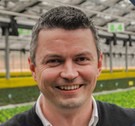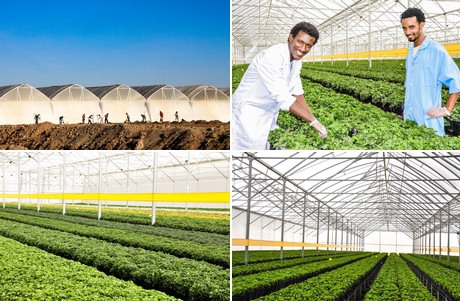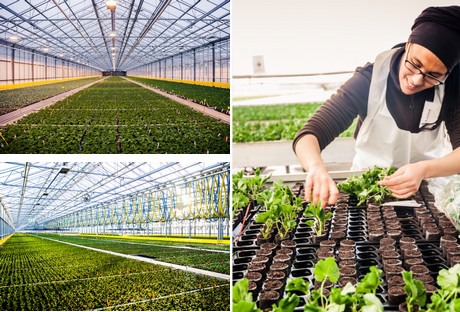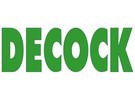DECOCK
 DECOCK is a Belgian based family business, established in 1987, that produces rooted and unrooted summer plant cuttings. Rooted cuttings are produced in a 6ha sized greenhouse in Komen, near the French boarder. The unrooted cuttings are produced in a 12ha sized greenhouse in Ethiopia, which was established in 2007. The company has an assortment of more than 150 varieties and exports their products to Japan, Korea, United States, Canada and all European countries. Their main market is Western Europe and their growing market is the United States.
DECOCK is a Belgian based family business, established in 1987, that produces rooted and unrooted summer plant cuttings. Rooted cuttings are produced in a 6ha sized greenhouse in Komen, near the French boarder. The unrooted cuttings are produced in a 12ha sized greenhouse in Ethiopia, which was established in 2007. The company has an assortment of more than 150 varieties and exports their products to Japan, Korea, United States, Canada and all European countries. Their main market is Western Europe and their growing market is the United States.Production of the cuttings
The production of the cuttings take place in their greenhouses in Ethiopia and Belgium. According to Verbaeys, good genetics, knowledge, climate and logistics are essential for producing high quality cuttings. "It all starts with good genetics. Then, in order to grow the cuttings, the combination of knowledge and climate is extremely important." Therefore, they established a greenhouse in Ethiopia. "Over there, the climatological conditions are very beneficial for the cultivation of the cuttings. Moreover, we have a well-educated team of Ethiopians working on the farm."
The unrooted cuttings are produced in Ethiopia.
Afterwards, the cuttings will be transported to the 6ha sized greenhouse in Belgium to be rooted. Then the logistics part comes in. However, not all cuttings are directly transported to Belgium. There are also countries that require unrooted cuttings, like the United States. In order to keep the quality high, the transportation needs to be well organized", says Verbaeys. This is all done in a sustainable way; the products are MPS certified.

The cuttings are rooted in the greenhouse in Belgium.
Market trends
"Regarding summer flowers, we notice that the lavender and dipladenia are popular and are still increasing in popularity." Especially the dipladenia is growing in popularity in the US. “The plant is already very popular in Europe. Now, the advantages of the plant are also recognized in the US.” Therefore, more US growers start to cultivate dipladenia, which result in a demand for unrooted cuttings. According to Verbaeys, the plant is popular due to the fact that they are ‘drought resistant’; which means that the plant will survive when it is not watered for a longer period. “It perfectly fits the way the modern generation would like to keep plants”, says Verbaeys.Besides this increase in demand for dipladenia cuttings, they also recognized a decrease in demand for cuttings of other plants. "Last year, we have had a difficult period with the geranium and pelargonium; the winter was quite soft in Europe. Therefore, many plants in people's gardens survived. Consequently, they did not buy new plants and the growers remained with a large surplus of plants. Therefore, the growers ordered less young plants for coming season. This winter, however, the weather was colder and I expect they will have a shortage this season. Therefore, the next season is expected to be better."
Future plans
"Due to the fact that the United States is a growing market for us, we are planning to expand our greenhouse in Ethiopia. This enables us to produce more unrooted cuttings."For more information
DECOCK plants

Vincent Verbaeys
Email: [email protected]
www.decockplants.be
